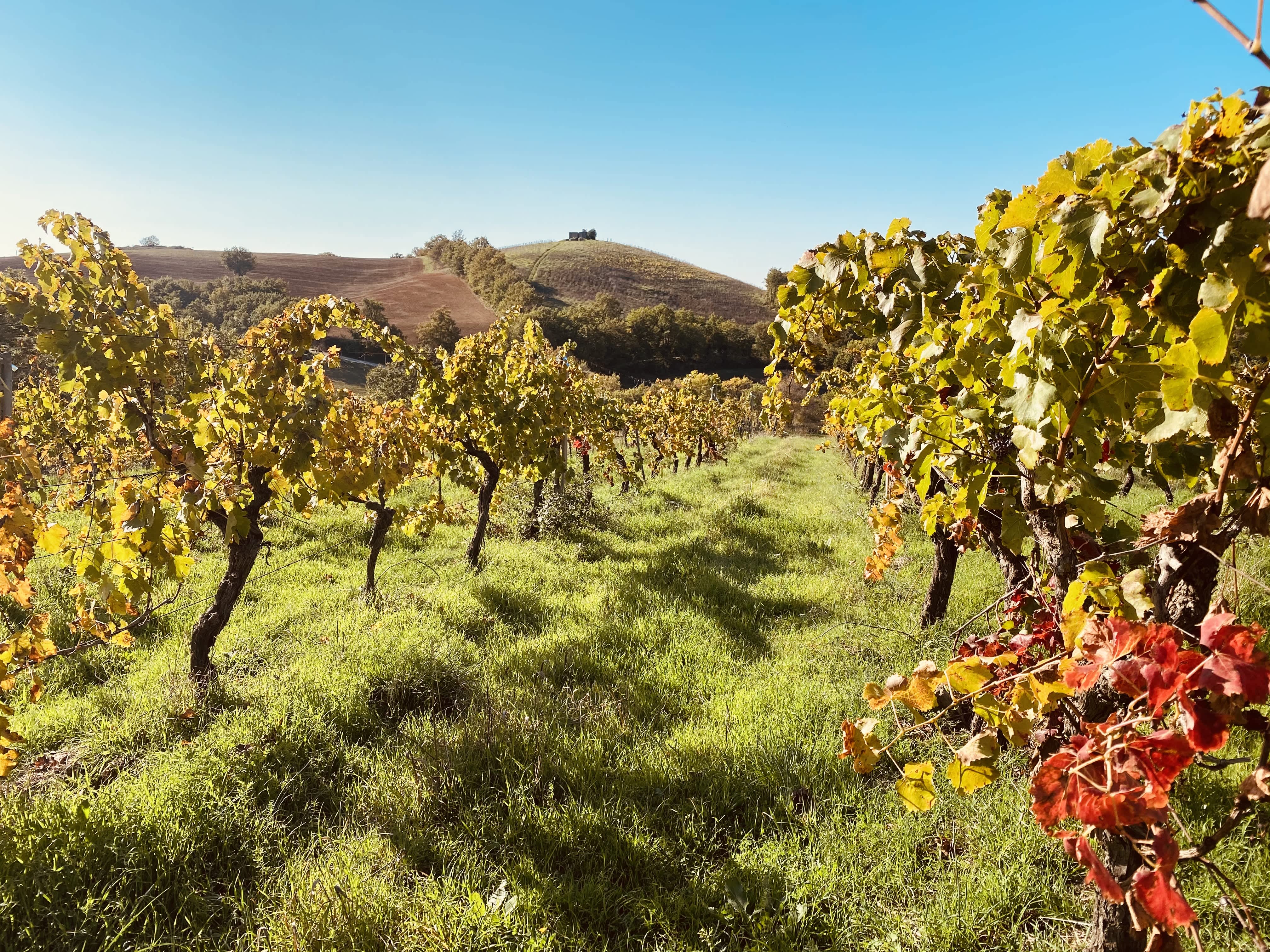Fattoria La Maliosa is a 160-hectare farm in the Maremman hills made up of arable lands, vineyards, olive trees and forests. It produces natural wines, extra virgin olive oil and honey. The farm has held both organic and biodynamic certifications since 2010, reflecting a continued commitment over time. It’s here that Antonella Manuli has implemented a project based on quality, beauty and environmental wellbeing with complete respect for the territory and its originality. The “Metodo Corino” (registered patent and registered trademark by Lorenzo Corino and Antonella Manuli) is a set of innovative agronomic processes for the production of table and wine grapes. The method focuses on the vitality of the soil and the health of the environment, producers and consumers. Taken together these activities contribute to the growth of the sector with values that are not limited to the production of grapes and wine, but include the culture, lifestyle, landscape patrimony, longevity of the vineyard and asset value of the land, as well as a profit margin for producers. The “Metodo Corino” makes targeted and innovative choices regarding the environmental conditions, vines and optimal cultivation techniques for vineyards that strongly wish to preserve the value of places and landscapes. The grapes must come from a professional and sustainable management of the vineyard and must lean towards values of qualitative excellence and nutritional goodness. Cultivation is sustainable if it’s able to supply, with a certain regularity, products with a strong identity, while respecting the territory of origin. This sustainability assessment is measured by at least two criteria: the biological quality of the soil (SBQ) and the Carbon Footprint (LCA-assessment) of the farm and its products. Furthermore, a vegetal-based cultivation cycle produced onsite is a fundamental choice. In the transition from grape to wine, fermentation must take place naturally with yeast and indigenous bacteria. The subsequent processing of the wine in the cellar must be carried out with human expertise in obtaining wine. This must be done without any additives or invasive technology or the use of any chemical or physical intervention capable of modifying the origin and/or natural evolution of the wine, which must find its exclusive origin in the grape. Our crop choice prioritises the valorisation and conservation of land use capacity through favourable interventions like restricting compaction and erosion and promoting organic matter and biological life in general. We use ancient cultivated vines, encouraging the genetic variability between the different choices. As for farming methods, we prefer the least invasive techniques and those most in harmony with the surrounding environment. The farm has recovered a more than 50-year-old vineyard from a state of semi-abandonment, which allowed us to verify the wealth of grapevine germplasm, both for the red and white vines that were selected and retrieved within the farm. This currently consists of six hectares, where we cultivate red wines that include the Ciliegiolo, Sangiovese and Alicante and white vines like the Procanico, also known as the Trebbiano rosa, the Ansonica and the Grechetto, also called the Trebbianino. The farm also has some wild vines (Vitis vinifera subsp. Silvestris), which are proof that some form preceded the current vine (Vitis vinifera Sativa). They’re sometimes found climbing trees in the forests and fruit small bunches as a result of their wild surroundings. These relics are proof of an environment protected from intensive farming in the past.





